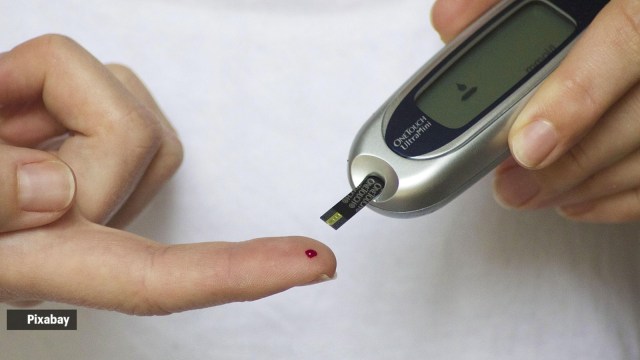📣 For more lifestyle news, click here to join our WhatsApp Channel and also follow us on Instagram
‘My husband’s fasting sugar remains 160 to 170 mg/dl. He doesn’t feel any weakness, always walks and cares for his diet too. His PP sugar is also the same. Should he start medicine?’
The aim is not simply to lower the sugar levels, though, but to avoid long-term complications
 Here's what you should consider (Photo: Pixabay)
Here's what you should consider (Photo: Pixabay)A healthy diet doesn’t necessarily equal controlled blood sugar. People with diabetes often don’t have any symptoms even when their sugar levels are high enough to do a lot of damage to their internal organs. Ideally, someone without diabetes should have a fasting blood sugar level of 110 mg/dL or less and a post-meal blood sugar level of 140 mg/dL or less. So, when a Quora user asked, ‘My husband’s fasting sugar remains 160 to 170 mg/dl. He doesn’t feel any weakness. He always walks and cares for his diet, too. His postprandial blood sugar is also the same. Should he start medicine too?’, we decided to verify with an expert.
Living an active life with a healthy eating pattern may not be enough when the numbers are consistently high, according to Dr Pranav Ghody, Consultant Endocrinologist and Diabetologist at Wockhardt Hospitals, Mumbai Central.
“Lifestyle habits like regular walks and mindful eating are essential, but they may not be enough if the pancreas isn’t producing enough insulin or if there’s resistance to insulin action. Over time, even a balanced diet might not fully offset these factors. If the numbers are consistently high despite lifestyle efforts, that’s a sign to re-evaluate the treatment plan,” said Dr Ghody.
What type of tests need to be performed before initiating any medication?
Perform a lab-based fasting and post-prandial test to validate the results and assess HbA1c, which reflects your average blood sugar reading for the last three months. “If HbA1c is 6.5% or more, it establishes diabetes and usually demands treatment by a physician. Additional tests to check for the health of other organs, such as the kidneys, liver, and cholesterol, may also be needed,” noted Dr Ghody.
 Are you really fit? (Photo: Freepik)
Are you really fit? (Photo: Freepik)
Then must medicines be initiated immediately?
If the tests do confirm diabetes, then beginning a “low-dose medication early can help safeguard major organs such as the heart, kidneys, eyes, and nerves”. “The aim is not simply to lower the sugar levels, though, but to avoid long-term complications. It’s like preventive maintenance, not punishment,” said Dr Ghody.
That discussion is best done in person with a qualified physician.
What to note?
Don’t wait for symptoms, Dr Ghody stressed. “High sugars can damage your body silently, even if you are symptom-free. The solution is early, guided treatment, timely testing, and regular follow-ups with a physician or an endocrinologist,” said Dr Ghody.
DISCLAIMER: This article is based on information from the public domain and/or the experts we spoke to. Always consult your health practitioner before starting any routine.
📣 For more lifestyle news, click here to join our WhatsApp Channel and also follow us on Instagram
- 01
- 02
- 03
- 04
- 05



























